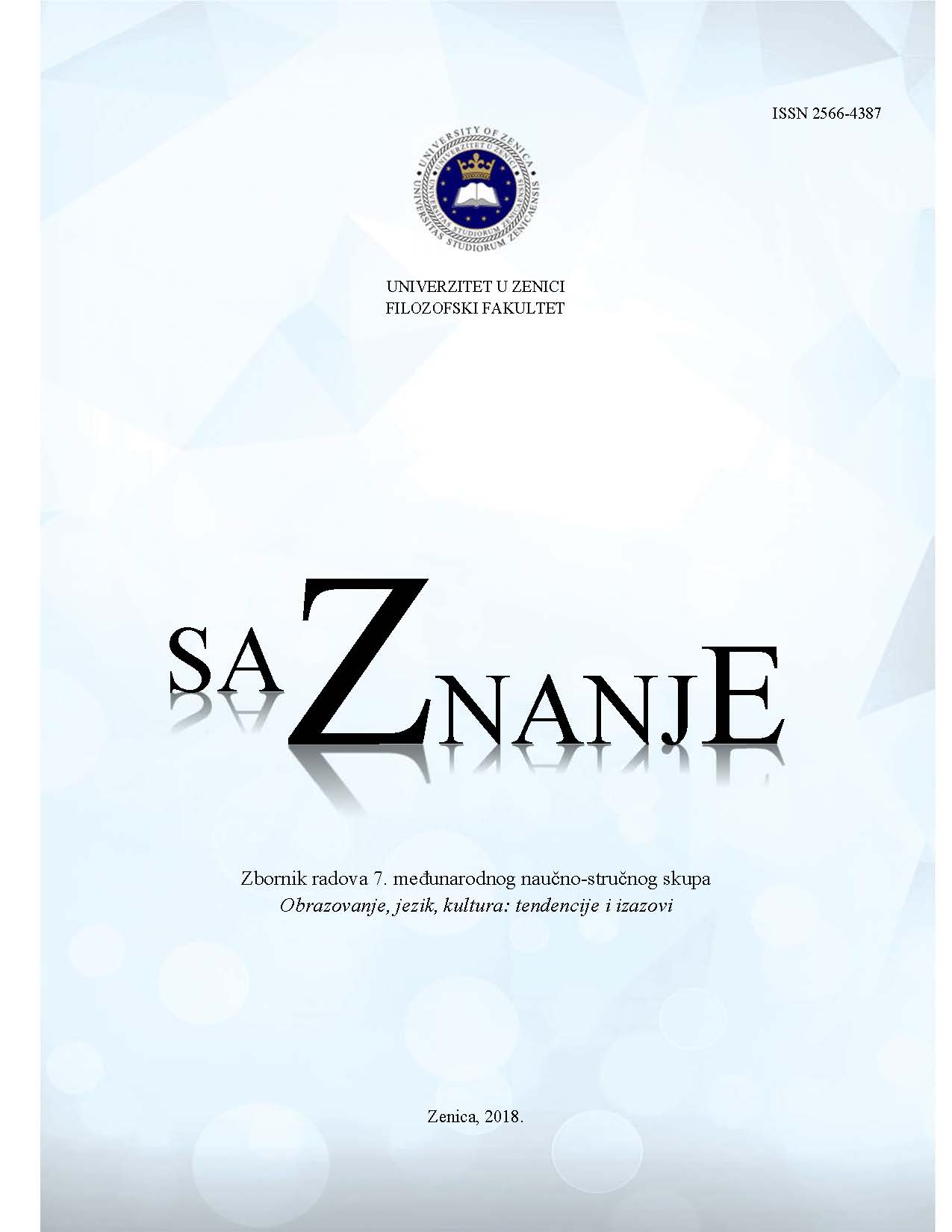METODIČKI ASPEKT SEMANTIČKIH PROMJENA
METHODOLOGICAL ASPECT OF SEMANTIC SHIFT
Author(s): Nebojša VasićSubject(s): Language and Literature Studies, Foreign languages learning, Theoretical Linguistics, Semantics
Published by: Filozofski fakultet, Univerzitet u Zenici
Keywords: applied linguistics; translation theory and practice; change of meaning; semantics; transfer;
Summary/Abstract: Semantic changes in the context of applied linguistics (methodology) include changes in the meaning of the word and the way of acquisition. The paper describes the changes in the meanings of words such as; narrowing, spreading, functional transfer of meaning, associative transfer, abstraction, hyperbola, metaphor, weakness of meaning, semantic degeneration, etc. Analysis of the meaning change of the word is significant for the theory and practice of translation which is in the domain of applied linguistics as a prerequisite for adopting advanced translation competencies. All these changes are illustrated by examples that are often the source of translation dilemmas. The paper covers (among others) the following terms; hospital, wife, lobby, adder, cattle, cellar, science, vegetable, cunning, bonfire, fellow, holiday, cash, deduce, crazy, gossip, awful, terrible, gale, passenger, brown, harlot, lollipop, ambition, enhancement, poison, vulgar, hussy, cheat, etc. Based on the analysis of the above and similar terms, there will be evident semantic changeability that is especially noticeable in modern English. The theory and practice of translation requires an understanding of historical and contextually conditioned semantics as one of the prerequisites for improving the methodological guidelines related to the topic of the paper.
Journal: saZnanje
- Issue Year: 1/2018
- Issue No: 1
- Page Range: 540-547
- Page Count: 8
- Language: Bosnian

